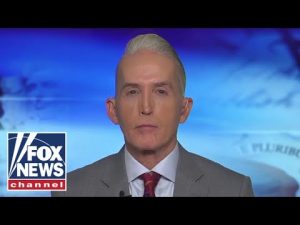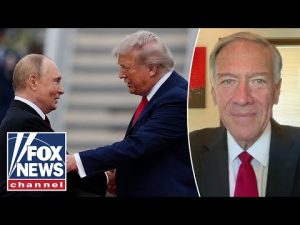In the intriguing world of political drama, once more, the name of James Comey, former FBI Director, has ascended to the forefront, stirring quite the spectacle. The core of this media turbulence circles around allegations of an impending indictment, a first for any former FBI Director. The criticisms towards Comey paint a picture of a man who sees himself above the rules—or perhaps more entertainingly—believes he is the one who writes them. It’s almost as if in his mind, he carries a gavel made of righteousness, swinging it with a grand sense of sanctimony.
The saga harks back to the controversies surrounding the exoneration memo of a renowned political figure, Hillary Clinton. It seems Comey fancied himself as the sole guardian of moral truth, bypassing the established Department of Justice protocols to announce his non-charging decisions. His actions at the time bordered on the divinely ordained, as if he, alone, held the moral compass required to navigate these turbulent waters. All the while, protocols and procedures languished, left to the side as his halo glistened.
When faced with the enigma of Donald Trump, Comey’s halo took on a more ominous glow. Rather than dismissing what was widely considered a baseless rumor, he boldly pursued it, handing out investigative energy like candy on Halloween. Somehow, this entailed embracing information fed by the Clinton campaign, unquestioningly accepting their whispers in the wind. It was almost comical how the man, who crafted his decisions with the steel of moral certainty, allowed himself to be led by the nose by partisan suggestions.
Adding fuel to this already blazing bonfire, reports came out that Comey may have indulged in some strategic leaking to major media outlets, purportedly providing juicy tidbits to “The Wall Street Journal.” A certain Mr. McCabe, with firsthand intelligence regarding the alleged leaks, appears to be locked in a contest of truths with Comey, leaving many to ponder the veracity of their conflicting testimonies. In this tale of clashing narratives, who carries the real torch of truth remains unclear, but it sure adds an entertaining twist to an already tangled knot.
As these historical chapters unfold, one cannot help but chuckle at the notion of Comey, a man once imagined to be the spearhead of justice, caught in this spectacle. The outcome, or his eventual “fate” as some dramatically label it, is likely being decided not just in courts, but also in the arena of public opinion and the pages of history. As juries deliberate and historians prepare their pens, the intricate dance between truth and fiction continues, providing an intriguing script for those eagerly watching from the sidelines.







